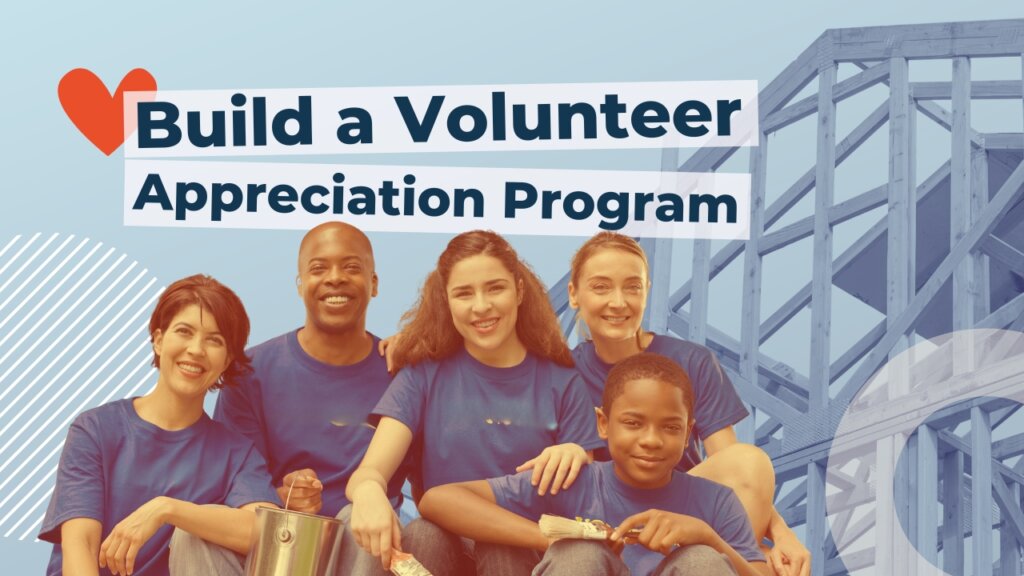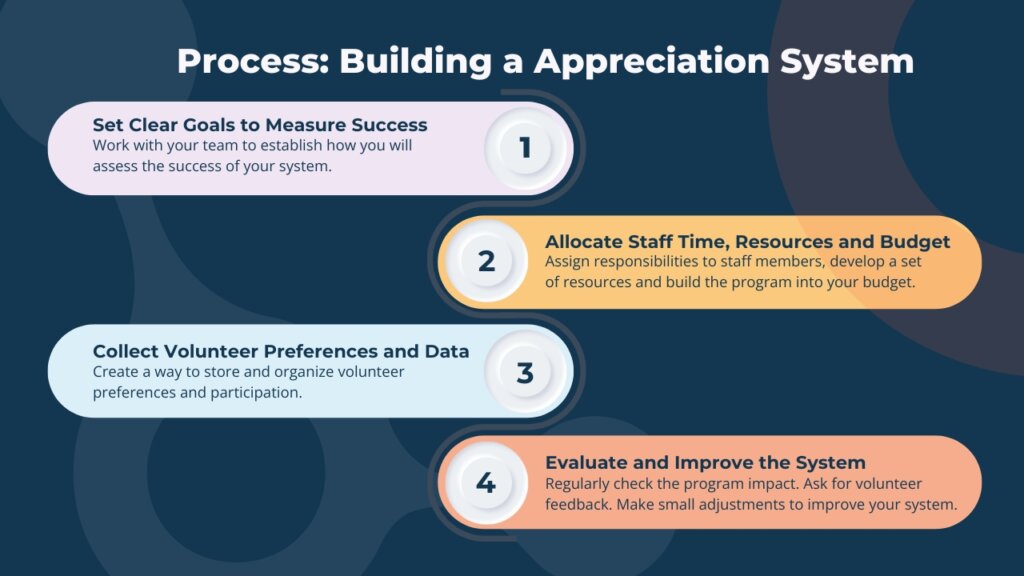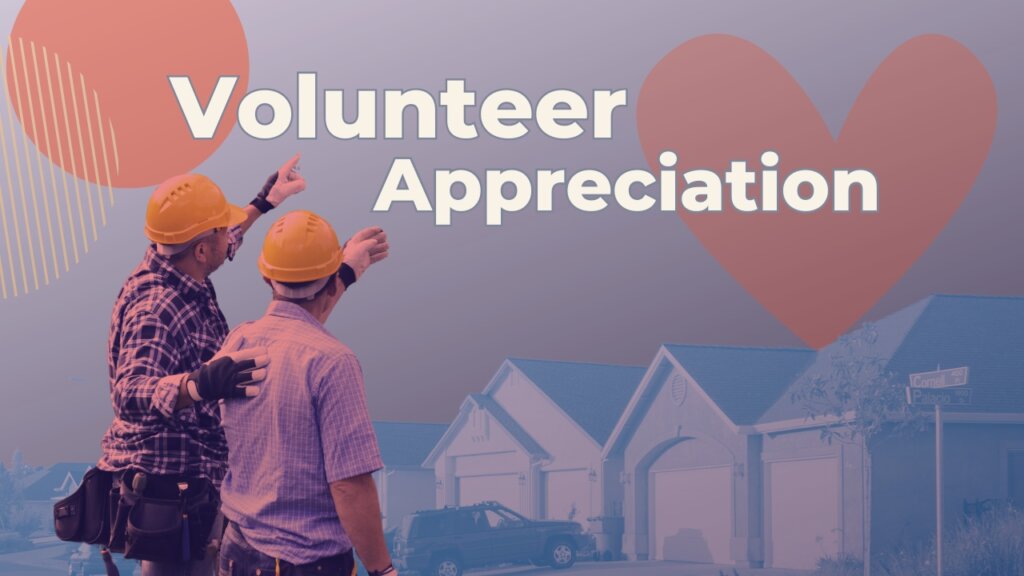Volunteer Appreciation Program Strategies: The Ultimate Guide

Volunteer appreciation is a big deal—but do your volunteers feel truly valued?
As someone who’s spent years working in nonprofits, I know how easy it is for volunteer recognition to fall through the cracks. You’re busy, budgets are tight, and sometimes appreciation feels nice instead of a must-have.
But here’s the truth: volunteer appreciation directly impacts your nonprofit’s success.
Volunteer Appreciation Starts with Volunteer Motivations
To create a successful volunteer program, you need to start by understanding why individuals volunteer.
Of course each individual is different, but there are patterns. Think of this similar to how you might segment your donors for better fundraising campaigns.
Just like anything else in your organization, a good volunteer appreciation strategy is a system or a process. But, it needs to feel personal. So, building a system that is flexible enough to handle personalization is important.
Volunteer Engagement Campaign Toolkit
Looking for better tools to recruit new volunteers and engage your existing volunteer community? Download our volunteer marketing toolkit. It includes postcards, social media templates, one-pagers, email and website graphics, and thank you cards. Customize everything in Canva to make it yours.
Here are some common motivations that we have seen with Habitat volunteers:
- Local Community Impact: Obviously, seeing the impact of Habitat’s work is important, particularly in one’s own community.
- Building Skills and Experience: One of the cool things about Habitat is learning skills that you otherwise wouldn’t get to do. Building a house is not something you get to do every day. In other cases, it may be that young individuals are looking to build career experience.
- Social Connections: We like to call these “Community Connectors.” These are the individuals in our community that not only like making connections themselves, but like to help others by using their connections.
- Building Community: This isn’t just about building houses, it’s about building connections with likeminded individuals in your own community. It’s about building a pool of friends. This isn’t just for retired individuals, it could be for people that recently moved into town, or people that feel the need to have friends that share values.
By understanding an individual’s motivation, you can make sure that your appreciation messaging can focus on these elements.
It could also be that the gift or recognition that you choose to use for appreciation matches their motivation. This will make the appreciation that much more heartfelt.
43 Volunteer Appreciation Ideas
Through affiliate input and industry research, our team put together a comprehensive list of volunteer appreciation ideas. Don’t recreate the wheel on this one.
10 Best Practices for Volunteer Appreciation
Volunteer appreciation ideas can be hard to come by. But, here are 10 tips to building a meaningful and personalized appreciation for your community.
1. Design and Document a Volunteer Appreciation Process
Just like any other process in your organization, building a system will help you be more consistent and successful. Systems also help make this a clear dedication responsibility for an employee or a volunteer.
What do we mean by a system? This may mean things like building a process for recognizing individuals at certain milestones; having annual campaigns or events; and writing down documentation to ensure that the system is carried out the same way regardless of who is running the program.
2. Prioritize Volunteer Appreciation
With the millions of things going on at your affiliate, it can be tempting to make appreciation and recognition something that is done when you have time.
This means it will never be at the top of your list. Building a system will make sure that volunteer appreciation has dedicated staff resources, and is part of your organizational budget.
3. Use an Individual’s Motivation to Personalize Your Appreciation
Even though you’ve established a system, it’s important to make your “Thank you” feel personal. The more that someone has dedicated time to your organization, the more special and personalized your appreciation can be.
If someone has only volunteered 2 days, you should still personalize their experience, but you may not make it as personalized as someone who has volunteered 500 days.
4. Celebrate Milestones
As part of your appreciation process, it’s important to create specific milestones to celebrate so you can be consistent in your recognition. Show your volunteers their journey matters:
- Anniversaries
- Completed projects
- Personal achievements (like birthdays or life milestones)
5. Provide Professional Development Opportunities
As volunteers reach certain milestones in their dedication to your organization, perks and access to special opportunities are a great way to motivate individuals.
Invest in your volunteers’ growth. Offer:
- Training workshops
- Skill-building seminars
- Career-related sessions
6. Host Appreciation Events
Nothing helps build community and relationships within your volunteer ranks like an in-person appreciation event. There are a million different opportunities, but here are some quick ideas:
- Appreciation lunches
- Potlucks
- Award ceremonies
7. Offer Tangible Tokens of Appreciation
Be careful when purchasing gifts. I have seen that some volunteers don’t like organizations to spend money on them. So, if you are going to provide some kind of gift, make sure that it’s not costly, and be sure that the individual is OK with receiving gifts.
That said, there are several other ways that you can provide a token of appreciation that doesn’t cost much money:
- Video thank you notes from affiliate leadership
- Handwritten notes from the entire organization, or specific team members
- Personalized SWAG that the volunteer can wear with pride
8. Highlight Volunteers Publicly
Make sure that the volunteer is OK with public accolades, and make sure you have their permission to publish any information or photos in your marketing.
If they are OK with it, give volunteers their moment in the spotlight:
- Social media shout-outs
- Newsletter stories
- Website spotlights
- Video interviews
Use our best practices guide around community story collection and storytelling to develop your volunteer appreciation content.
9. Seek and Act on Volunteer Feedback
You’d be surprised how much asking for someone’s opinion or feedback makes them feel like they are part of the team and being heard.
Show you are listening:
- Regular surveys
- One-on-one feedback sessions
- Implement suggestions quickly
WARNING: if you ask for a volunteer’s feedback it doesn’t mean that you have to implement it, however, if you never implement any of their feedback, this could have the opposite effect you’re hoping for.
10. Create a Supportive Community
If you carry out items 1-9 in this list, you’re likely to succeed in creating a supporting community. But, here are a few ideas to encourage volunteer camaraderie:
- Surprise small tokens of appreciation
- Peer-to-peer recognition
- Team-building events

How to Develop a Volunteer Recognition Program
As I mentioned in this article before, a solid volunteer recognition plan ensures consistency and shows genuine appreciation.
Here’s how to create one:
- Step 1: Ask volunteers how they’d like to be recognized.
- Step 2: Set clear goals for how you will measure the success of the program (e.g., increased volunteer retention).
- Step 3: Allocate your budget, time, and resources to help run your program.
- Step 4: Regularly evaluate and adapt your approach based on feedback.
Who Should Be Involved in Your Volunteer Appreciation Program?
Everyone! In fact, the more people that are engaged in the process of recognizing volunteers, the more genuine the process will feel. Make sure to include:
- Leadership – Sets the tone and importance.
- Board – Save this for very important occasions.
- Staff – Engages volunteers daily.
- Volunteers themselves – Encourages peer recognition.

Volunteer Appreciation Ideas Your Volunteers Will Love
Here is just a taste of a few volunteer appreciation ideas to consider. If you want more, read our comprehensive list of volunteer appreciation ideas.
1. Give Volunteers a Personal Call… From Someone New
That’s right. They’ve probably heard you say it 1,000 times (or at least I hope they have). Try bringing in someone new – perhaps your ED, board chair or construction manager. Phone calls feel personal. Hearing from someone else will feel meaningful.
2. Send a Personalized Thank You Email… From Someone New
Forget the email blasts with general appreciation. Get someone new (see item above for ideas) to send a personalized email. Make sure to be specific in the email about the impact or milestones your volunteer has reached.
3. Video Message from Your Executive Director
If you can’t see someone in person, the next best thing is a video. Record a short, authentic thank-you video message from your ED. Make sure the ED includes something personal about the volunteer’s impact so it doesn’t feel like a marketing piece. Send it directly to the volunteer.
4. Send Personalized Impact Reports
Regular impact reports validate the importance of volunteers’ efforts and keep them connected to your mission. Write a personal note in your impact report that highlights how the individual volunteer has contributed to something highlighted in the report. It could be the number of hours worked all year, or a specific task they did to build a home. Be specific and personal.
5. Throw a Surprise Party
Turn a regular volunteer shift into a surprise party focused entirely on recognizing and celebrating your volunteer. This could be for a major volunteer milestone, or for their birthday or other occasion. It’s unexpected and memorable.
6. Buy Lunch on the Construction Site
Does your volunteer have a favorite local restaurant that they like to order from at lunch? Maybe there’s a food truck nearby? Surprise everyone by catering lunch one day to say “Thank You!”
7. Signed Thank You Cards from the Whole Staff
Physical “thank you” cards signed by your entire team can be meaningful keepsakes for volunteers. Alternatively, get the whole board to sign a card if the volunteer has reached a key milestone.
8. Coffee and Breakfast Treats on the Construction Site
Those mornings on the construction site can be that much sweeter with a large carafe of coffee and some donuts to go along with it.
9. Baked Treats from Staff
Who doesn’t like a good homemade cookie? Homemade baked goods are always heartfelt and easy to coordinate—plus delicious.
10. Personalized Hard Hat and Toolbelt
Many construction volunteers take pride in their gear. There’s nothing that says “I love Habitat” like a customized Habitat hat and a sweet toolbelt to give someone some flair while they’re out working.
The Real Impact of Appreciating Volunteers
Taking volunteer appreciation seriously pays off. Here are three clear ways your nonprofit will benefit:
- Increased Retention – Appreciated volunteers stay engaged longer, reducing the constant cycle of recruiting and training. Also, as volunteers return, they build skills which means that they can do more, and have more impact on your work.
- Deeper Engagement – Volunteers who feel valued contribute more energy, ideas, and enthusiasm. In some cases, volunteers are even willing to take on more responsibility as leaders on specific responsibilities and jobs. This can free staff to do other more complex things.
- Greater Community Impact – Volunteers who feel recognized share positive experiences, attracting new supporters, donors, and amplifying your organization’s mission.
- Mission Ambassadors – When volunteers feel connected to your work, they become powerful community ambassadors for your work. Ultimately, their voices can be even more powerful than staff when speaking to other community members about getting engaged in your work.
Prioritize volunteer appreciation, and you’ll strengthen your organization’s foundation for lasting success.
